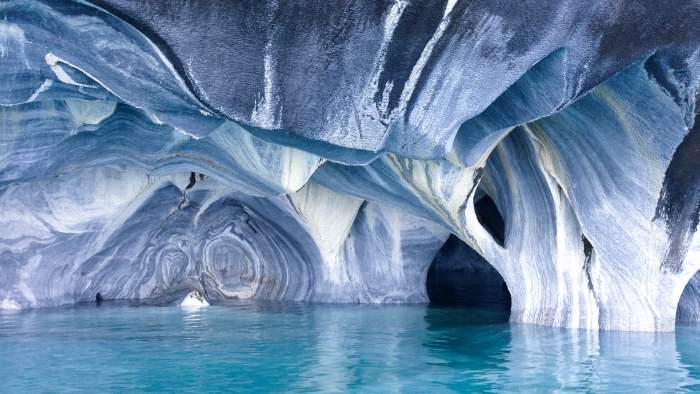Reading week has finally arrived. For many eager students, this well-deserved break only moves their academic pursuits from the lecture halls and libraries to the comfort of their own homes. While the semesterly grind may leave students feeling bogged-down and stressed-out, kicking back and relaxing with a good documentary, in place of a textbook, is a great way to keep spirits high.
Here are The McGill Tribune’s ‘need to watch’ Netflix documentaries that will keep those neurons firing this Reading Week.
Resistance (2015)
In this multifaceted approach to scientific reporting, Director Michael Graziano uncovers the role of antibiotic resistance in modern medicine. Resistance questions the 80-year-old history of the antibiotic revolution, using the power of hindsight to investigate how the drugs that were designed to save lives are now helping take them by the hundreds of thousands. This documentary features the first-hand accounts of individuals suffering from bacteria that have evolved antibiotic resistance, coupled with expert analysis that provides an in-depth look at the profound challenges that antibiotics have brought into everyday life. The growing prevalence of antibiotic resistance has changed the way hospitals treat patients, and is known to have adverse effects on the food supply. Resistance challenges viewers to weigh the pros and cons of taking antibiotics for a multitude of conditions that can be treated without medication, and the future adverse effects if the industry continues to overmedicate.
Into the Inferno (2016)
Ever thought about climbing up a volcano? This daring activity is just part of a day on the job for Clive Oppenheimer, a volcanologist at Cambridge University. In Into the Inferno, acclaimed German filmmaker Werner Herzog follows Oppenheimer, documenting their around-the-world trip to some of the planet’s greatest volcanoes. Herzog takes the audience on a journey of personal, social, and scientific discovery. With inspiring images and sublime footage, Herzog engages with the large community of volcanologists scattered across the globe. The film also includes various indigenous groups such as the Melanesian Ni-Vanuatu, whose religious and spiritual practices are centred around volcanoes. Herzog refers to the volcanoes as “magical”—a sight that must be seen to believe, and one which the director captures exquisitely throughout the film.
Terra (2015)
According to the film’s official website, Terra explores humanity’s existence on Earth. A story told in the first person from the perspective of humanity itself, this documentary searches to define the relationship between modern humans and our ancient ancestors. The film address prevalent social and conservation issues from across the world, including poaching on the African savannah, pollution of heavy metals into the atmosphere, and the rise of genetically modified organisms (GMOs) in the food supply. Through an optimistic lens, the film’s directors Yann Arthus-Bertrand and Michael Pitiot show audiences that in order to dictate our futures we must first understand the past, including not only the origins of the human race but every other species we share this planet with. By furthering our understanding of the world, from the soil beneath us to cultural phenomena, Terra takes no prisoners in its starkly beautiful depiction of human life on Earth.
The Secret Rules of Modern Living: Algorithms (2015)
This tongue-in-cheek BBC documentary special demystifies the hidden world of algorithms hard at work under the noses of the unsuspecting public. Marcus du Sautoy, a professor of Mathematics at Oxford University, takes the viewer on a 2,000-year journey to uncover algorithms used by Euclid, a Greek mathematician of the fourth century B.C., moving forward until the present-day, explaining the inner workings of Google, the world’s most popular search engine.
“Algorithms run everything,” Sautoy narrates in the film. “From search engines on the internet to satellite navigation systems and credit card data security,they even help us travel the world, find love, and save lives.”
Sautory also explores the future of algorithms, using interactive explanatory shorts to show the audience everything from the achievements of algorithms to how they can even self-program. This is a sure-to-thrill film for any aspiring programmer or mathematician.
BBC’s Planet Earth, Episode Four “Caves” (2006)
Having won an Emmy award for Outstanding Nonfiction Series in 2007, BBC’s Planet Earth is a classic nature documentary that refuses to be forgotten. The 11-episode series, which was rebooted on its 10th anniversary in 2017 for a second season, includes everything there is to be admired about filmmaking in the wild. Episode four of the original series takes its audience to new depths, exposing the inner workings of our planet, descending into the biological time machines that are caves. The episode showcases caverns around the world, both remote and well-known. From the 400-metre vertical shaft at the Cave of Swallows in Mexico to the crystal-filled chambers of Lechuguilla in the United States, Caves gazes deep into our planet and the beings, both human and animal, that call it home. Viewers descend with the cameras as they capture underwater caverns, bats in the millions, and diverse, complex ecosystems previously unseen by the human eye. With breathtaking visuals that will leave the audience stunned, Planet Earth maintains its magnificence over a decade after it was filmed.






